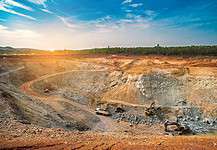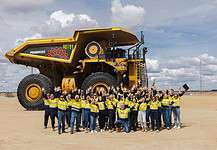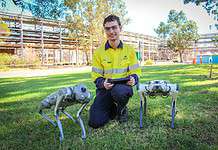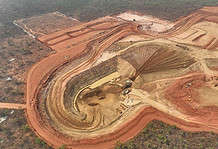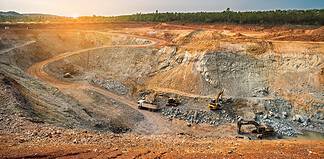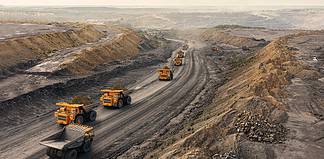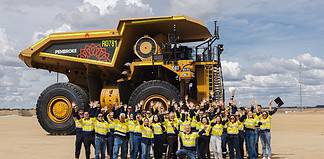Despite a contraction in coal prices, Whitehaven Coal is weathering the storm.
The company, which operates four mines in the Gunnedah Basin of NSW along with Winchester South in Queensland’s Bowen Basin, has been able to reward investors and pay out $312m in dividends through the FY20 period.
This was despite a softening of Whitehaven’s earnings in the year ending June 30, which reflected lower Newcastle thermal coal prices and the impact on run of mine production due to labour shortages and dust issues at its Maules Creek mine, which produces some of the highest quality high energy thermal coal in Australia.
Whitehaven also required a longwall change out at the Narrabri mine, which caused eight weeks of disturbance to operations.
COVID-19 had a profound impact on both thermal and metallurgical coal markets, due to the lockdown of Asian economies including China and India, and historically low prices from US, Canadian and Colombian exporters and more recently, from Australian and Indonesian producers.
The short-term outlook for thermal and metallurgical coal is dependent on post-pandemic economy and industrial recovery, which has so far had positive signs in Australia with the resumption of term contract shipping schedules.
Whitehaven managing director and chief executive officer Paul Flynn said despite these difficulties having an impact on the company, he is confident about the continuing demand for high quality coal.
He is however still cautious of short-term economic uncertainty, as Whitehaven eyes future projects such as the recently approved Vickery extension project in NSW.
“The NSW Government’s approval was a significant achievement but, given continuing short-term economic uncertainty, we remain cautious about expansion and capital allocation,” he said.
“Our immediate focus is on achieving greater efficiency and more consistent operational performance in anticipation of markets rebalancing and price improvements beginning to flow through.
“We are confident about the continuing demand for high quality coal in a more carbon conscious world and the major role it will play as part of the global economic recovery.”
Vickery Extension
As a result of the NSW Independent Planning Commission (IPC)’s approval of Whitehaven’s application to extend the Vickery coal mine, the company is now permitted to extract 13mt a year of coal over a 25-year mine life.
The primary approval followed a lengthy technical evaluation process for the project and a comprehensive program of community consultation and outreach, including a Multi-stage Public Hearing administered by the IPC during February 2019 and July 2020.
In its coordinated Whole of Government assessment released in May 2020, the NSW Department of Planning, Industry and the Environment had previously concluded the Vickery Project was “in the public interest and … approvable.”
Mr Flynn said Vickery would further cement Whitehaven’s growing stature as a key supplier to premium overseas markets.
Whitehaven’s focus will now shift to obtaining the necessary secondary approvals and any further project optimisation as a precursor to works commencing under the new approval.
Vickery will be a predominantly metallurgical coal mine and will service established and emerging markets for high quality coal in our near region.
It will entail capital expenditure of $700m and is expected to generate employment for 500 people during the construction phase and 450 ongoing operational roles.
Whitehaven has pledged that 75% of the workforce will be locally-based.
“While there are still considerable risks for the global economic outlook given the continued spread of the virus, the fundamentals of our business model continue to remain robust,” Mr Flynn said.
“Throughout the pandemic, our portfolio of coal products have remained sought after and well sold under long term contracts to the cornerstone high-energy, low-impurity coal markets of Japan, Korea and Taiwan, as well as burgeoning markets in developing southeast Asian nations.”
Other Highlights
During FY20, Whitehaven executed on a number of other equity and debt transactions.
On January 2, the business completed the acquisition of EDF Trading Australia, which owned a 7.5% interest in the Narrabri underground mine. Closing the acquisition brought Whitehaven’s ownership interest in the mine to 77.5%, effective as of July 1, 2019.
On February 19, Whitehaven refinanced its senior bank debt facility with a syndicate of Australian and international banks.
The new facility is a senior secured syndicated revolving corporate debt facility with an aggregate limit of $1b and able to be utilised for general corporate purposes with bilateral bank guarantee capacity. The term has been extended to mature in July 2023.
During the June quarter, a Japanese export credit agency facility of $51.7m was finalised with two leading Japanese banks and the Nippon Export and Investment Insurance Company.
The eight-year facility is fully amortising and is on terms that are consistent with the main funding facility of the group.
The facility reimbursed Whitehaven for certain expenditures associated with upgrading the Tarrawonga overburden and coaling fleet.
Safety Performance
The safety outcome for the Group for the period was a total recordable injury frequency rate (TRIFR) of 4.13, the lowest ever for the company, and remains well below the NSW coal mining average of 14.64.
Mr Flynn said the company is committed to the goal of achieving zero harm to its people and the environment.
“The rapid implementation of our COVID-19 response plan has helped to keep our people and their families safe and supported continuity of production and employment,” he said.
The result of the emphasis on health and safety was clearly demonstrated recently when, despite the obstacles posed by the pandemic, participants in the third annual Healthhaven challenge clocked up an outstanding 64,773,453 steps and 375,634 active minutes.
The Whitehaven health initiative aims to encourage employees to live healthy and active lives, and starts with employees undergoing a comprehensive health check before competing against colleagues across Whitehaven’s sites for prizes.
Ordinarily the challenge concludes with all participants receiving a health check to see how far they’ve come, but this year COVID restrictions meant health assessments weren’t able to be conducted at the end of the eight-week challenge.
Nonetheless the pandemic meant participants got creative, including Andrew Alloway, who logged more than 1.2 million steps over eight weeks.
While the Maules Creek Mine supervisor considered getting involved in the challenge last year, 2020 was the first year he signed up for Healthhaven.
“I did want to improve my health and set a good example for my kids, but I also have a very competitive streak, and signed up to beat a teammate who does triathlons … which I did!” Mr Alloway said .
“Where we live, I found myself driving a lot – for the challenge I started walking everywhere, and it changed my mindset. In fact I recently went on a holiday with my family and we walked everywhere, leaving the car at home.
“I’ve got four kids, and while they were homeschooling during COVID, the challenge was a good way to get out of the house too.
“And at work, if we had a wet day, I’d be doing laps around the crib room or down the hallway to the point where my teammates would say ‘can you just stand still for a minute?!’”
Through the online Healthhaven hub, members of the workforce can access resources to help establish healthy behaviours, through things such as advice on nutrition, exercise and work-life balance, or research studies on certain health topics.
Over the eight weeks, Mr Alloway lost about 20kg, but he says the impact has gone far beyond the weight loss.
“It’s a team-building experience with my workmates, so not only is it good for your health, it’s good for your mental health as well,” he said.
“The challenge has seen us all walking a lot more, and my eldest daughter walks everywhere with me now. It didn’t just change me, it changed my whole family.”


